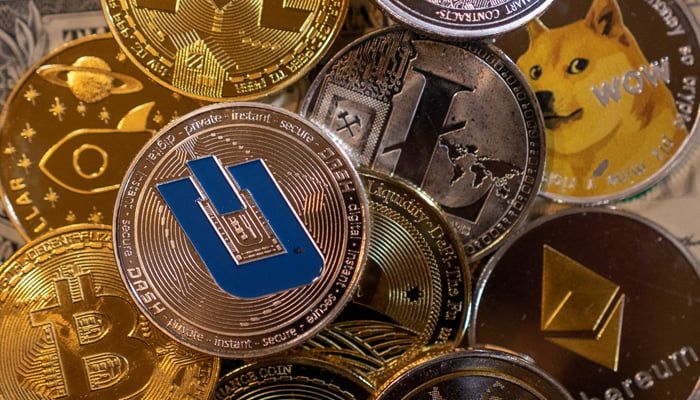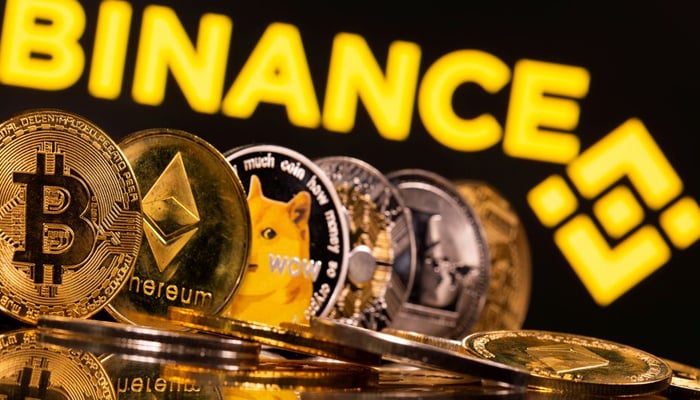The great potential of cryptocurrencies in Pakistan
An increasing number of individuals and businesses across the world are turning to cryptocurrency for a range of investments
January 10, 2022

An increasing number of individuals and businesses across the world are turning to cryptocurrency for a range of investments and transactional and operational purposes. Pakistan is no exception.
According to 2021 Chainalysis Global Crypto Adoption Index, Pakistan ranks 3rd amongst the top ten countries with the highest number of crypto users.
While some endorse cryptocurrency capabilities to enable real-time, safe, and faster money transfers, others appreciate its decentralised nature and user autonomy. A low transaction fee, since there is no intermediary involved in between, is another prominent reason crypto has gained popularity.
Asia: A fast-growing market
Cryptocurrency is getting globalised rapidly and Asia is one of its fastest-growing markets.
As per Triple-A, a global cryptocurrency payment company, the current user base in Asia is more than 160 million. The company also estimates that global crypto ownership will grow by more than 3.9% i.e. almost 300 million users across the globe by the first quarter of 2022.
More than 18,000 businesses already include cryptocurrency among their available payment modes, including giants like Coca-Cola, Airbnb, Booking.com, and more.
Triple-A also highlighted that 40% of the retail users, using cryptocurrency as a mode of payment, are the new industry entrants while retail crypto transactions are increasing by 12.5% on average, every year.
Luxury brands are also turning to crypto as a mode of payment to protect themselves from gray and counterfeit markets.
In 2020, digital remittances and offshore transfers to the tune of $90 billion were recorded, since crypto remittances are not only 388 times faster but also 127 times economical than the traditional remittance transfer methods.
The way forward in Pakistan
As identified by the Atlantic Council’s South Asia Center discussion, held on December 13, Pakistan witnessed a major hike in cryptocurrency investment during the pandemic, with total market capitalisation surpassing $2 trillion last year.
According to a report by the Federation of Pakistan Chamber of Commerce and Industry, Pakistan’s main trade regulation body, the country recorded $20 billion of crypto value in the fiscal year 2020-2021, which was an unusual hike of 711%.

The federation also mentioned that cryptocurrencies thrived mostly during the pandemic times and the biggest crypto exchange that Pakistani investors were using was Binance, followed by other platforms like Localbitcoins.com and Binomo.
The report noted that 67% of crypto-investors in Pakistan are using centralised services, while just 33% are using decentralised financing platforms to make crypto-related transactions.
How does it work?
The peer-to-peer crypto model for investing in cryptocurrencies is such that buyers transfer funds directly to sellers, while the service providers serve as intermediaries.
Convectional international payment modes like debit and credit cards, cannot be used for buying these currencies because of the central bank’s prohibition on financial institutions under its umbrella.
Most investors, thus, use either bank transfers or other means like JazzCash or EasyPaisa for the same.
In Pakistan, many people are attracted by the quick returns that they can get by investing in crypto and by the huge margins if the investments are done wisely. People are making money from either direct or indirect investments from cryptocurrency, trading through other cryptocurrencies by investing bitcoins in it.
Another great aspect is that since Paypal does not provide its services in Pakistan, and the process of withdrawing bitcoin as actual money is hectic, the adoption of cryptocurrency can make Pakistan a potential hub of economic activities.
Current regulations
Policymakers are now realising how important crypto adoption can be in Pakistan, with the country’s central bank governor mentioning that the institution has been looking into digital currency and its significance for bringing the transactions happening out of the books into the regulatory framework.
In December 2020, the Khyber Pakhtunkhwa assembly also passed a resolution unanimously to legalise cryptocurrency.
Even though Binance is one of the most downloaded apps in Pakistan, it is not regulated or approved by the regulators. Up until now, the Security and Exchange Commission of Pakistan (SECP) has not granted any license or approval to cryptocurrencies.
It is time that more effort is made to advocate for cryptocurrency and educate policymakers in Pakistan about this new space. There is an opportunity to develop an ecosystem that can embrace this opportunity and build wealth in the country.
Finally, it is important to understand that cryptocurrencies are more than just money. The novel economic system aims to minimise our reliance on third parties for transactions and give us full control over our assets.











